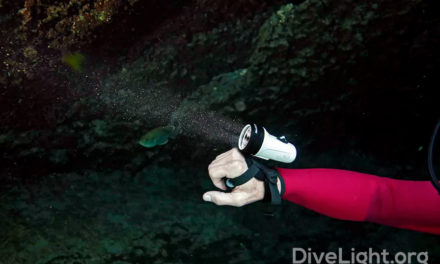Undersea adventures and sporting have always been a fun thing to do, but for most divers, diving in the dark is the scariest thing ever. Occasionally some find themselves in this horrific situation when their dive light fails, an occurrence that’s significantly more likely when a dive light isn’t properly cared for. This article covers the major reasons why dive lights need to be maintained, how to do it effectively, and an overview of the parts that require the most attention.
Why should you maintain your dive light? To:
- Prevent the light from leaking, which can cause corrosion, blinking or even total failure.
- Protect the light from the corrosive chemicals found in the batteries, which damage the aluminum coating and potentially damage the light’s circuitry.
- Ensure maximum brightness for better visibility.
The major parts that require frequent inspection include the battery and the O-ring.
To ensure proper care before diving:
- Ensure the O-ring seal is regularly inspected, cleaned, lubricated and replaced in case of any damage. When removing the o-ring, use your fingers since any other object can damage the o-ring and the surface it rests on. By doing this, the chances of leaking will be drastically reduced.
- Before going underwater, ensure the lid head is tightly screwed on.
- Use quality batteries, fully charged and always check the dive light’s operation before getting in the water.
- Inspect for any corrosion damage. If this is not adhered to, the light may blink or even fail completely while diving.
After diving:
- Avoid placing the light on sand since iron can find its way into the switch and screws, causing a malfunction.
- Use fresh water to clean the exterior of the light by soaking it for about thirty minutes after diving. Then, wipe the water away with a dry, soft cloth. After drying, open the light and check for any damage. Cleaning increases the lifespan of your dive light by preventing the salt from eating away at the dive light’s components.
- Avoid exposing magnetically-controlled switch lights to any magnetic field, as this can cause a switch failure.
- Remove the battery before storing. The battery produces electrolytes responsible that can corrode the aluminum coating.





